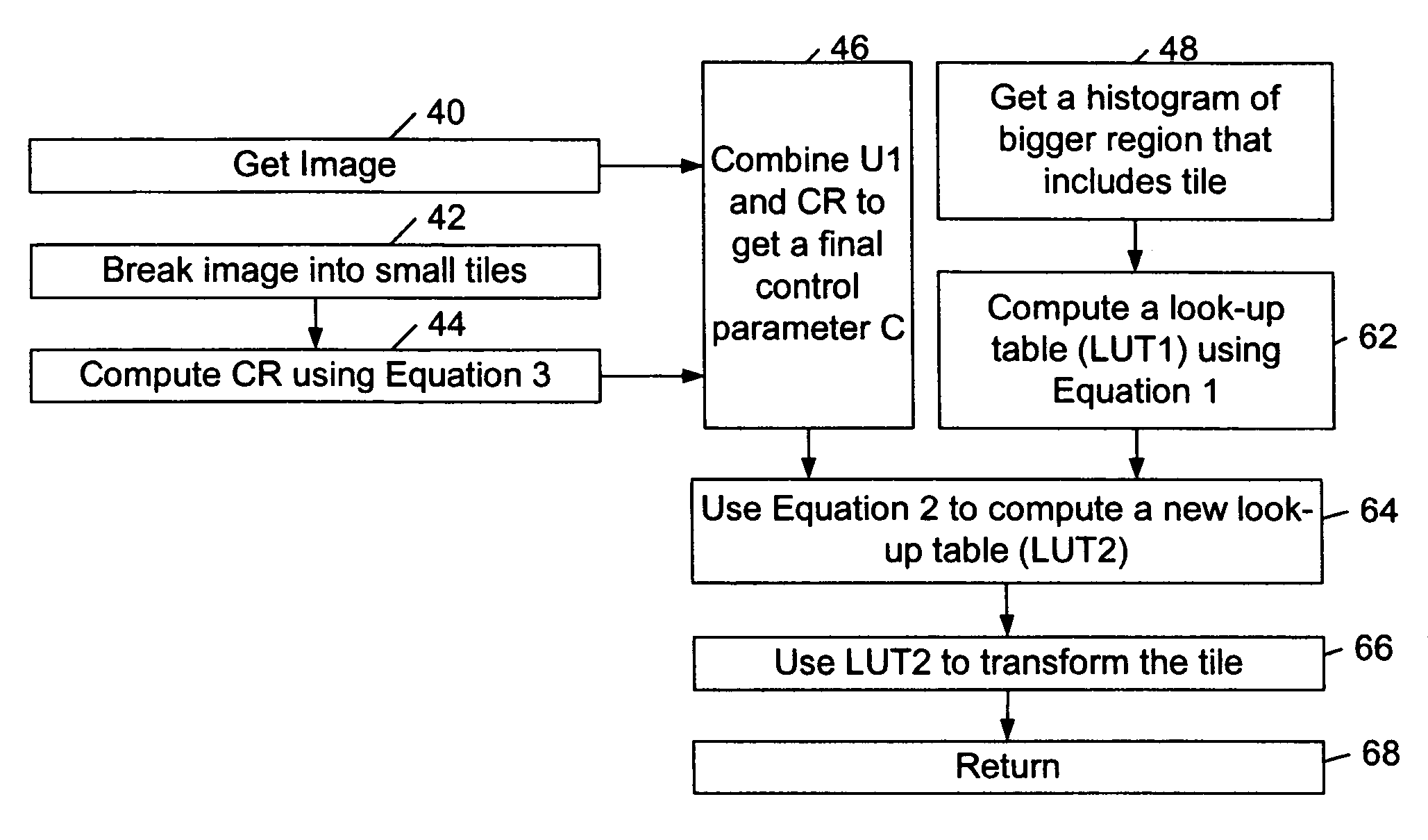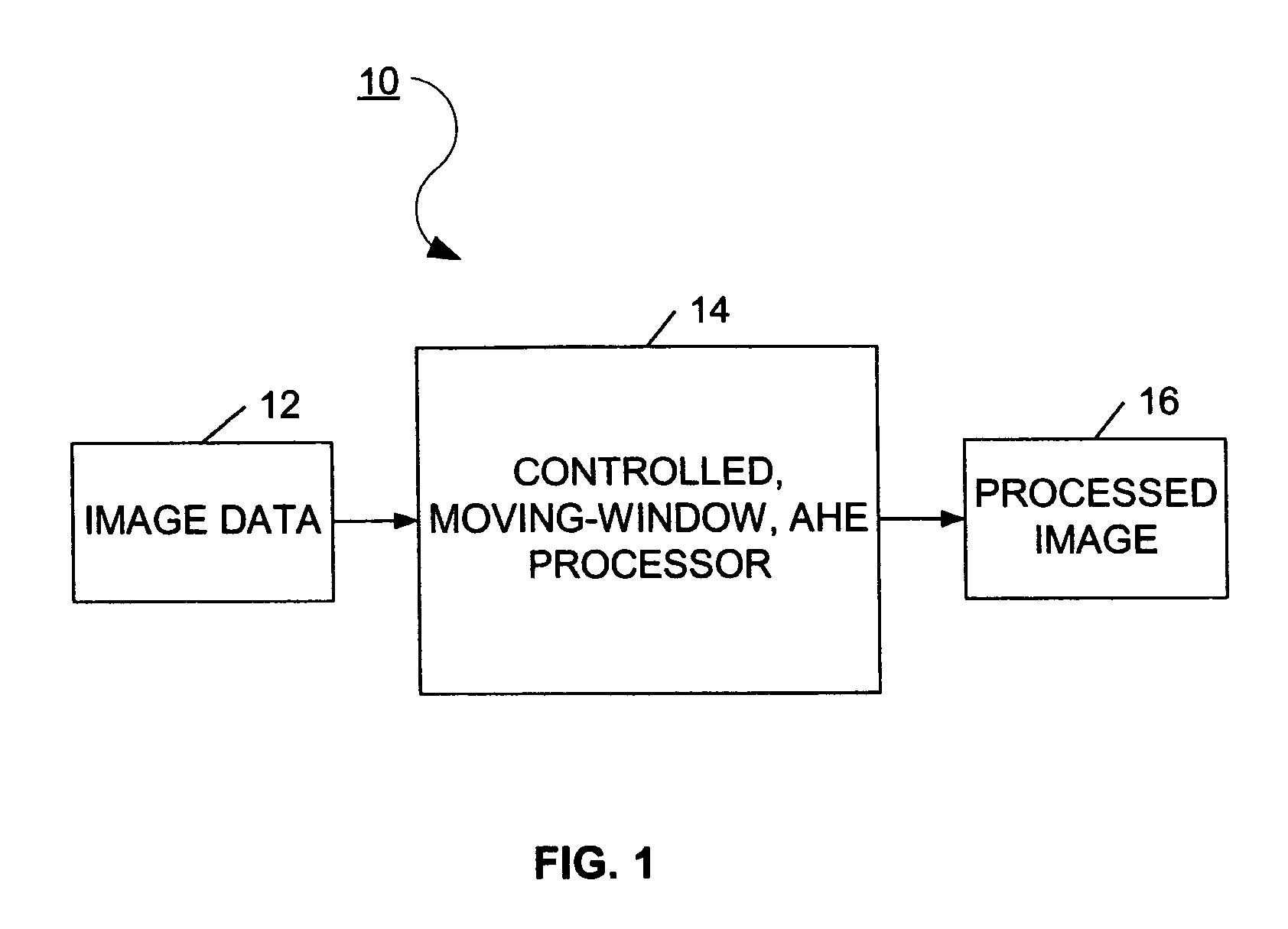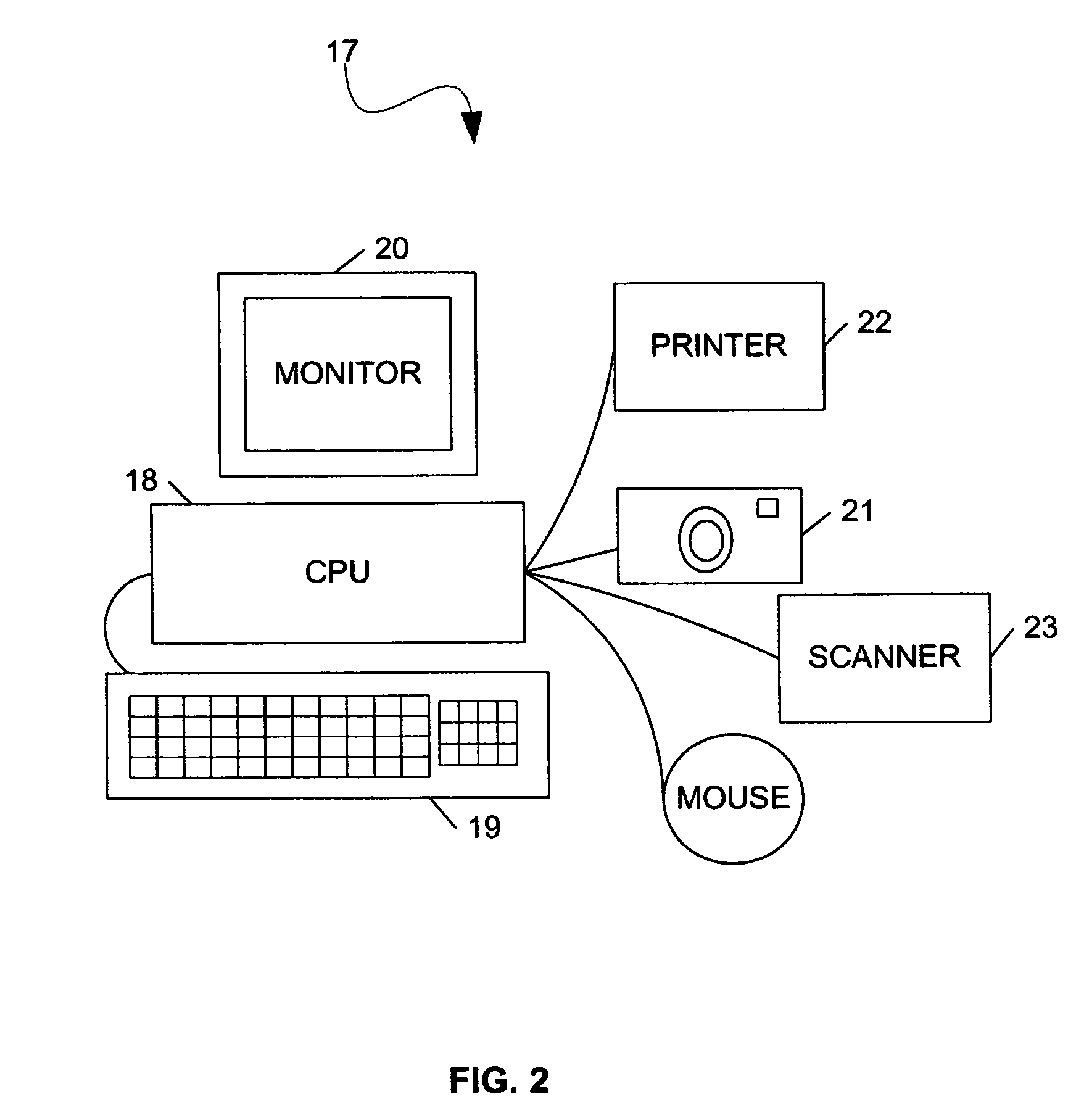Controlled moving window adaptive histogram equalization
a technology of adaptive histogram and controlled moving window, which is applied in the field of image processing, can solve the problems of not always achieving maximum contrast, and achieve the effect of minimizing graininess
- Summary
- Abstract
- Description
- Claims
- Application Information
AI Technical Summary
Benefits of technology
Problems solved by technology
Method used
Image
Examples
Embodiment Construction
[0034]Before embodiments of the invention are described in detail a brief review of histogram equalization and moving window AHE is provided.
[0035]In ordinary histogram equalization, an attempt is made to make the histogram uniform by redistributing gray or color levels, depending on whether black and white or color images are processed. The following discussion is based on gray scale images with 256 levels (enumerated 0-255). If color images are processed, either each color channel (e.g., red (“R”), green (“G”), and blue (“B”)) is treated separately or the luminance channel is used.
[0036]For gray scale images, the redistribution performed through histogram equalization, for an input I and producing an output O1, may be described by:
[0037]O1=256×(∑L=0lPL / (Nx*Ny))-1(Equation1)
[0038]In Equation 1, Nx and Ny are an image width and height in pixels, respectively, and PL is the population of pixels at a level L. The output value O1 for each input value is stored in a look-up table. Th...
PUM
 Login to View More
Login to View More Abstract
Description
Claims
Application Information
 Login to View More
Login to View More - R&D
- Intellectual Property
- Life Sciences
- Materials
- Tech Scout
- Unparalleled Data Quality
- Higher Quality Content
- 60% Fewer Hallucinations
Browse by: Latest US Patents, China's latest patents, Technical Efficacy Thesaurus, Application Domain, Technology Topic, Popular Technical Reports.
© 2025 PatSnap. All rights reserved.Legal|Privacy policy|Modern Slavery Act Transparency Statement|Sitemap|About US| Contact US: help@patsnap.com



